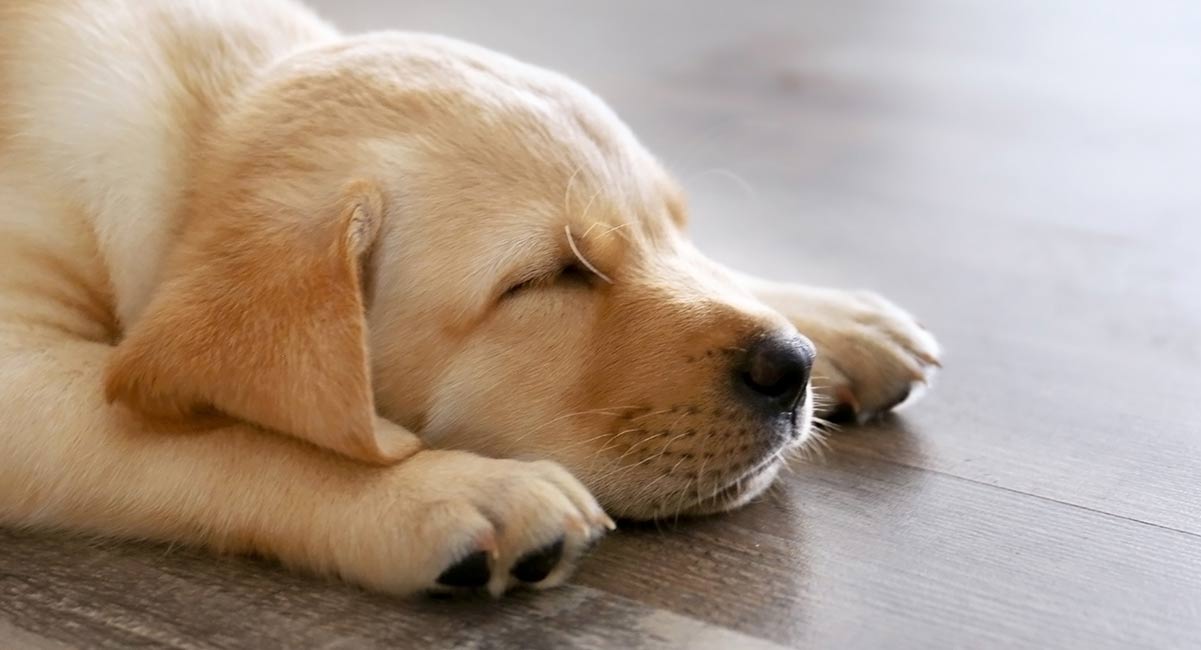Why do dogs make bubble noises while sleeping? This peculiar sound has intrigued many pet owners, leading them to wonder about the reasons behind their dogs making bubble noises during their slumber. Sleep is vital for dogs, just as it is for humans, and dogs spend a significant portion of their day resting. However, the sleep behaviors of dogs can vary widely, with some dogs sleeping quietly, while others exhibit unique behaviors such as snoring, whimpering, or making bubble noises.
The phenomenon of a dog making bubble noises while sleeping can be both amusing and puzzling for pet owners. In this article, we delve into the fascinating world of canine sleep to uncover the reasons why dogs make bubble noises. Whether it’s due to physical reasons, dreaming, or other factors, understanding why your dog is making bubble noises while sleeping can provide valuable insights into their health and well-being. Join us as we explore the intriguing reasons behind this behavior and what it means for your furry friend.
One plausible explanation for why dogs make bubble noises, particularly observed when a dog is making bubble noises while sleeping, is the relaxation of the throat muscles during their deep sleep phase. Similar to humans experiencing muscle relaxation in deep sleep, dogs also undergo a phase where their muscles, including those in the throat area, become significantly more relaxed. This muscle relaxation can lead to the vibration of soft tissues in the throat, which is a key factor in the production of these intriguing bubble-like noises.
These sounds can vary widely, from being soft and gentle to more loud and noticeable. Understanding why dogs make bubble noises, especially when observing a dog making bubble noises while sleeping, sheds light on the natural relaxation processes occurring in dogs during their sleep cycle, emphasizing the similarities between canine and human sleep physiology.

Dogs Making Bubble Noises When Sleeping
Furthermore, certain breeds are more prone to making bubble noises while sleeping. Brachycephalic breeds, such as Bulldogs, Pugs, and Boxers, have shorter snouts and narrower airways, making them more susceptible to snoring and other respiratory issues. These breeds may experience increased air turbulence during sleep, resulting in the production of bubble-like sounds.
It’s important to note that in most cases, bubble noises during sleep are harmless and do not indicate any underlying health issues. However, there are instances where excessive snoring or abnormal breathing patterns while sleeping can be a cause for concern. If you notice any significant changes in your dog’s sleeping habits or if they seem to be struggling to breathe, it’s advisable to consult with a veterinarian to rule out any potential respiratory problems.
The Science Behind Dogs Making Bubble Noises When Sleeping
Understanding Why Dogs Make Bubble Noises While Sleeping
To grasp why dogs make bubble noises during sleep, it’s crucial to delve into their sleep cycle. Dogs, akin to humans, navigate through diverse stages of slumber, encompassing both REM (Rapid Eye Movement) sleep and non-REM sleep phases. The REM sleep stage is particularly significant when exploring why dogs make bubble noises. It’s during this phase that dogs are most likely to exhibit a range of behaviors, such as twitching, moving their paws, and making vocal sounds.
These manifestations can clue us into the phenomenon of a dog making bubble noises while sleeping. The occurrence of dogs making bubble noises while slumbering is intricately linked to their REM sleep phase, where the most vivid dreams happen, and consequently, where a dog making bubble noises while sleeping is a common observation. This understanding sheds light on the curious behavior and provides insight into the complex sleep patterns of our canine companions.
Delving deeper into understanding why dogs make bubble noises while sleeping is essential for pet owners seeking to ensure the well-being of their furry friends. This article aims to thoroughly explore the phenomenon of dogs making bubble noises while asleep, providing insights and practical advice to foster healthy sleep habits for your canine companion.
By closely examining the reasons behind why dogs make bubble noises during sleep, we can address any potential concerns related to their sleep patterns, offering peace of mind to dog owners. As we proceed, our focus will intensify on the specific topic of dogs making bubble noises while sleeping, aiming to increase awareness and understanding of this behavior. Join us as we further investigate the causes and implications of why dogs make bubble noises while sleeping, ensuring that your dog enjoys a restful and healthy slumber.
Muscle Relaxation and Airway Obstruction
One of the primary reasons why dogs make bubble noises, especially noticeable when a dog is making bubble noises while sleeping, is due to muscle relaxation in the throat area. As dogs enter deep sleep, their muscles undergo a significant relaxation process, including those muscles that are crucial for maintaining an open airway.
This state of relaxation can lead to a partial obstruction of the airway, causing the soft tissues within to vibrate and consequently create those distinctive bubble-like sounds. Understanding why dogs make bubble noises, particularly the phenomenon of a dog making bubble noises while sleeping, highlights the natural relaxation process and the physiological changes that occur during their sleep cycle.

Why Do Dogs Make Bubble Noises
Brachycephalic breeds, characterized by their short snouts and compressed airways, are more prone to snoring and other respiratory issues. These breeds, such as Bulldogs, Pugs, and Boxers, have narrower air passages, making it more difficult for air to flow freely during sleep. The increased turbulence of air can contribute to the production of bubble noises.
Normal vs. Abnormal Bubble Noises in Dogs Making Bubble Noises While Sleeping
Understanding why dogs make bubble noises, especially while sleeping, is important for pet owners. In many cases, a dog making bubble noises while sleeping is a normal and harmless occurrence. However, distinguishing between these regular bubble noises and abnormal breathing patterns is crucial. Excessive snoring, gasping for air, or a dog struggling to breathe while sleeping might not just be about why dogs make bubble noises but could indicate underlying health issues.
Conditions such as respiratory infections, allergies, or even brachycephalic airway syndrome could be the culprits behind a dog making bubble noises while sleeping more prominently or distressingly. If you notice any concerning changes in your dog’s breathing patterns, or if the dog making bubble noises while sleeping is accompanied by other symptoms, consulting with a veterinarian is advisable. Being aware of why dogs make bubble noises can help pet owners identify when these sounds are normal or when they may signal something more serious.
Environmental Factors and Sleep Quality
If you’re noticing your dog making bubble noises while sleeping or at any other time, and you’re wondering, “Why do dogs make bubble noises?” it’s crucial to pay close attention to their breathing patterns. These sounds can be a sign of respiratory issues, and if these bubble noises are accompanied by other symptoms, it’s imperative to consult with a veterinarian.
A professional can thoroughly assess your dog’s respiratory health to determine the reasons behind the bubble noises, especially if your dog exhibits these symptoms while sleeping. They can diagnose any underlying conditions contributing to your dog making bubble noises and recommend effective treatment or management strategies to ensure your pet’s well-being.
Practical Recommendations for Managing Bubble Noises During Your Dog’s Sleep: Addressing Why Dogs Make Bubble Noises
1. Create a Comfortable and Clean Sleeping Environment
bubble noises while sleeping, it’s crucial to provide a cozy, clean sleeping area. This peculiar sound, often a sign of complete relaxation or dreaming, can sometimes be influenced by the environment. To address concerns about why dogs make bubble noises, start by minimizing dust, allergens, and other potential irritants that could affect their breathing.
Regularly cleaning their bedding and maintaining good ventilation in the sleeping area not only enhances air quality but might also reduce the occurrence of your dog making bubble noises while sleeping. By focusing on creating a clean, well-ventilated environment, you can help ensure these bubble noises remain a harmless quirk rather than a symptom of discomfort.
2. Monitor Your Dog’s Weight and Promote Exercise to Reduce Bubble Noises During Sleep
Maintaining a healthy weight is crucial for your dog’s overall well-being, especially when considering their respiratory health. Obesity can exacerbate breathing difficulties, which is a key reason why dogs make bubble noises. These bubble noises, particularly noticeable when your dog is making bubble noises while sleeping, can be a sign of respiratory distress.
Regular exercise not only keeps your dog fit but also helps in preventing weight gain, thereby reducing the likelihood of your dog making bubble noises while sleeping. Ensuring your pet maintains a healthy weight is vital in minimizing the risk of snoring and the occurrence of bubble noises, providing a clearer insight into why dogs make bubble noises and how to prevent them.
3. Consider Elevated Sleeping Positions
Elevating the sleeping position of brachycephalic breeds, or dogs known for making bubble noises while sleeping, can significantly improve airflow and reduce the incidence of these sounds. For dog owners wondering why dogs make bubble noises, it often comes down to their anatomy and sleeping position.
By using specially designed elevated dog beds or placing their regular bed on an elevated surface to ensure their head is slightly elevated, you can help minimize the reasons behind a dog making bubble noises while sleeping. This adjustment in their sleeping setup not only aids in better breathing but directly addresses the concern of why dogs make bubble noises, especially in breeds prone to snoring and respiratory challenges.

Why Do Dogs Make Bubble Noises
4. Consult with a Veterinarian
If you’re noticing your dog making bubble noises while sleeping or at any other time, and you’re wondering, “Why do dogs make bubble noises?” it’s crucial to pay close attention to their breathing patterns. These sounds can be a sign of respiratory issues, and if these bubble noises are accompanied by other symptoms, it’s imperative to consult with a veterinarian.
A professional can thoroughly assess your dog’s respiratory health to determine the reasons behind the bubble noises, especially if your dog exhibits these symptoms while sleeping. They can diagnose any underlying conditions contributing to your dog making bubble noises and recommend effective treatment or management strategies to ensure your pet’s well-being.
5. Avoid Exposure to Potential Irritants
Understanding why dogs make bubble noises, particularly during sleep, involves recognizing the impact of environmental factors on their respiratory health. Exposure to smoke, strong chemical odors, or other irritants can significantly increase the likelihood of a dog making bubble noises while sleeping. This is because such irritants can aggravate their airways, leading to the production of these unusual sounds. For dog owners concerned about why their dogs make bubble noises, it’s crucial to ensure their pets are not in environments that could exacerbate this issue.
Furthermore, if your dog is making bubble noises while sleeping and has known allergies, it’s essential to collaborate closely with your veterinarian. Managing your dog’s allergies effectively can reduce the occurrence of these bubble noises, providing a clearer understanding of why dogs make bubble noises and how to mitigate them. Keeping your dog’s sleeping area free from potential irritants is a proactive step in addressing the question of why dogs make bubble noises while they sleep.
6. Regular Veterinary Check-ups
Routine veterinary check-ups are crucial for overseeing your dog’s overall health, particularly when it comes to understanding why dogs make bubble noises, including their respiratory system’s condition. These regular examinations are vital for early detection of any peculiar sounds, such as a dog making bubble noises while sleeping, which could indicate underlying health issues.
By focusing on the reasons behind why dogs make bubble noises, veterinarians can offer timely intervention or management strategies. This proactive approach ensures that any concern, especially the phenomenon of a dog making bubble noises while sleeping, is addressed before it escalates, maintaining your furry friend’s health and wellbeing.
7. Provide Mental and Physical Stimulation
Understanding why dogs make bubble noises, especially while sleeping, can sometimes be puzzling for pet owners. Engaging your dog in both mentally stimulating activities and ensuring they receive ample physical exercise can significantly promote better sleep quality. When a dog is both physically tired and mentally satisfied, they’re more likely to enjoy a restful sleep, which can reduce the chances of them making bubble noises or snoring excessively during their slumber.
It’s crucial to remember that each dog is unique, and their sleep patterns and the reasons why they might be making bubble noises while sleeping can vary. Although these bubble noises during sleep are often harmless, it’s vital for dog owners to remain observant. If you notice any concerning changes in your dog’s sleep habits, breathing patterns, or an increase in the frequency or volume of the dog making bubble noises while sleeping, seeking professional veterinary advice is essential.
By focusing on these practical tips, including understanding why dogs make bubble noises and how to potentially reduce occurrences through mental and physical stimulation, you can help ensure your furry friend enjoys a comfortable and peaceful sleep. This not only contributes to their overall health and happiness but also gives pet owners peace of mind knowing their dog is sleeping well, with minimal disturbances from bubble noises or other sleep-related sounds.
Conclusions
In conclusion, the phenomenon of dogs making bubble noises while sleeping is often attributed to muscle relaxation and airway obstruction. This occurrence, although usually normal, signifies why dogs make bubble noises, highlighting the importance of closely monitoring any shifts in your dog’s sleep patterns and breathing habits. If you’re concerned about your dog’s respiratory health, especially if your dog is making bubble noises while sleeping, and these sounds are accompanied by other worrisome symptoms, it’s crucial to consult with a veterinarian for a thorough evaluation. Understanding why dogs make bubble noises and being vigilant about changes can ensure your pet’s well-being and address any potential health issues promptly.
For more in-depth information on maintaining your dog’s overall health and ensuring they have a comfortable sleep environment, consider exploring Geepets.com. This site offers a wealth of resources on pet care, from selecting the right bedding to understanding the nuances of canine behavior. Additionally, for further reading on how to address and potentially minimize sleep disruptions caused by breathing issues in dogs, the American Kennel Club (AKC) website is an invaluable resource.
Check out their expert advice at AKC.org where you’ll find articles on a range of topics, including breed-specific advice for brachycephalic dogs and tips on managing and improving your pet’s sleep quality. Both these resources can provide pet owners with the knowledge and tools needed to ensure their furry friends enjoy a healthy, happy, and restful sleep.






















